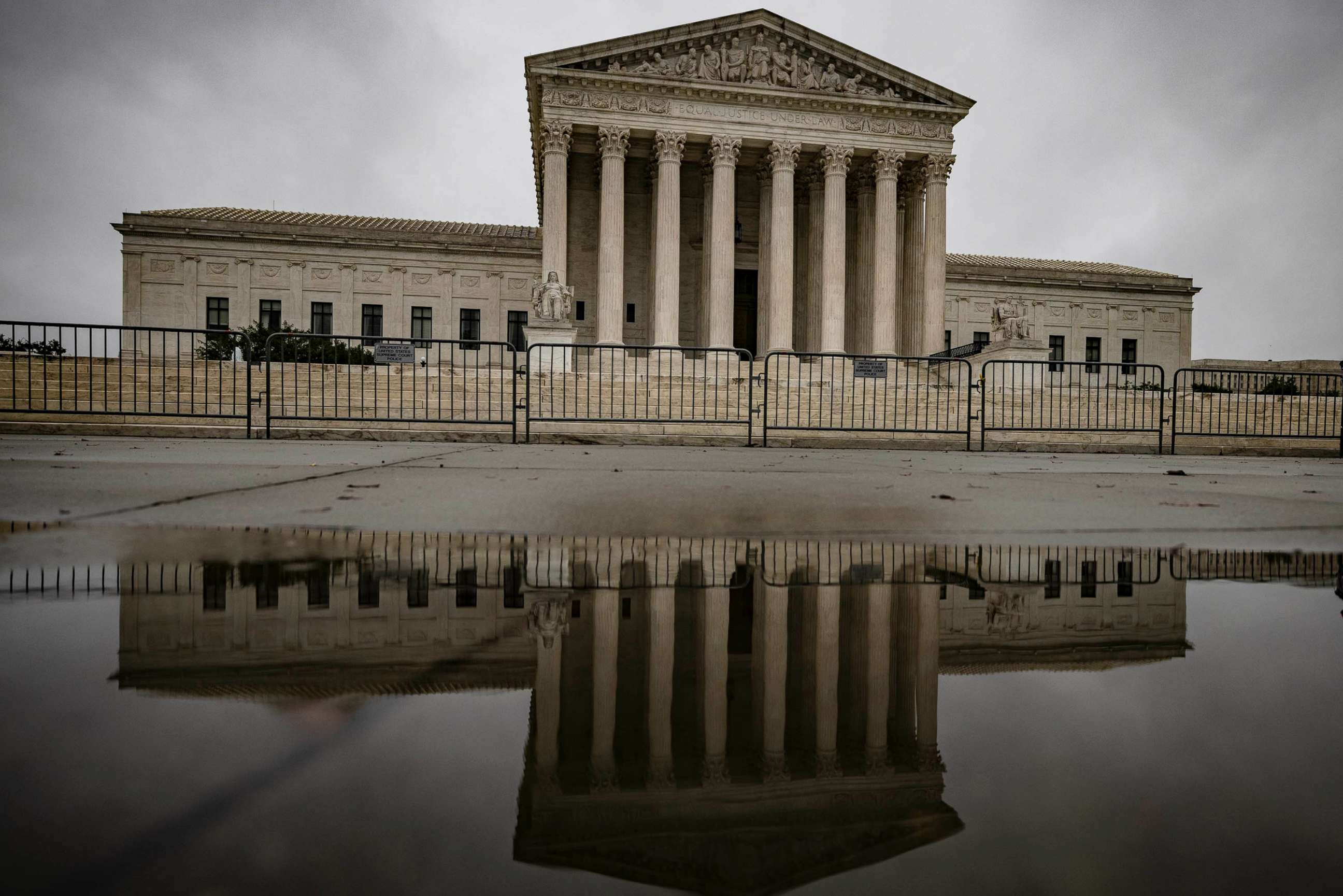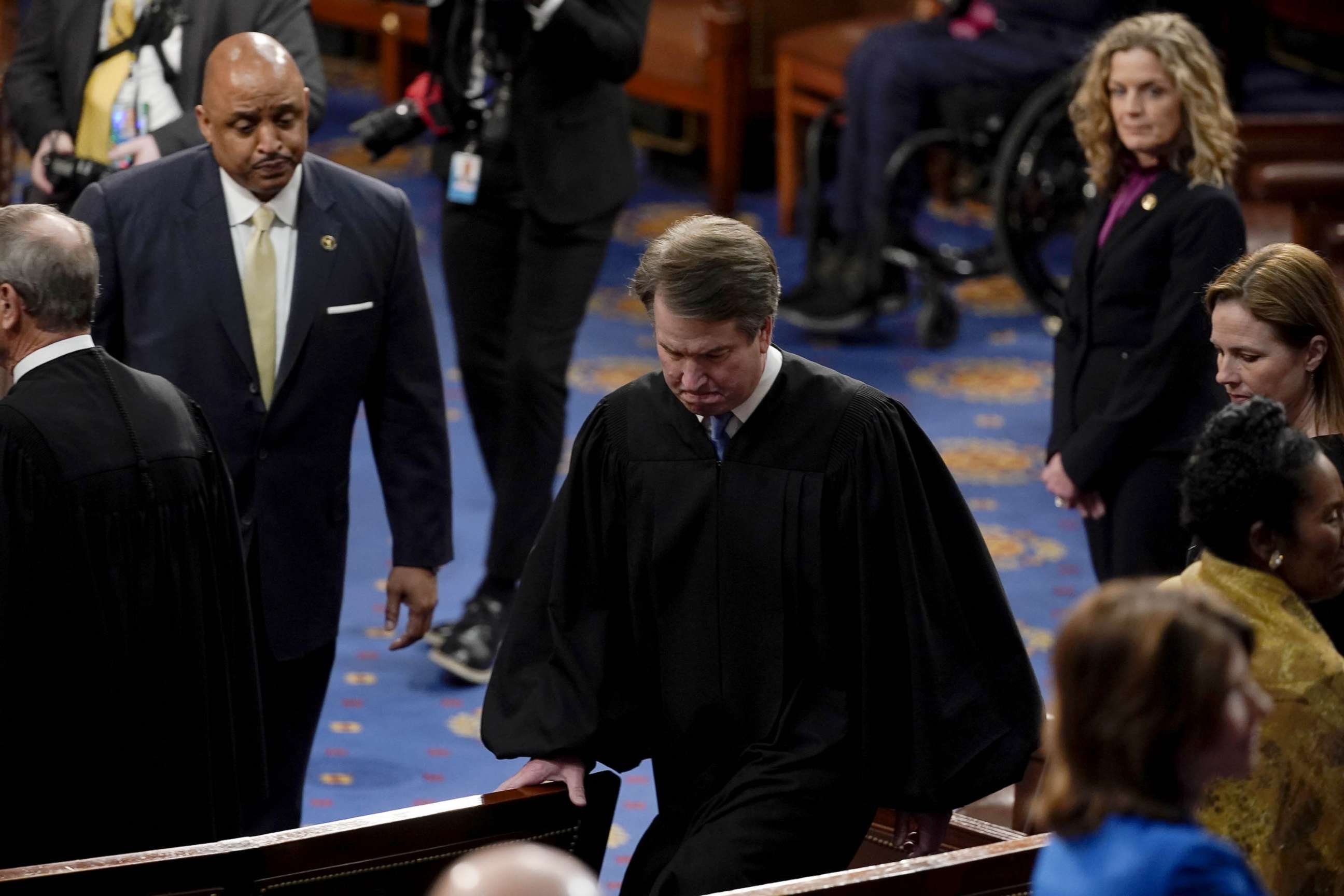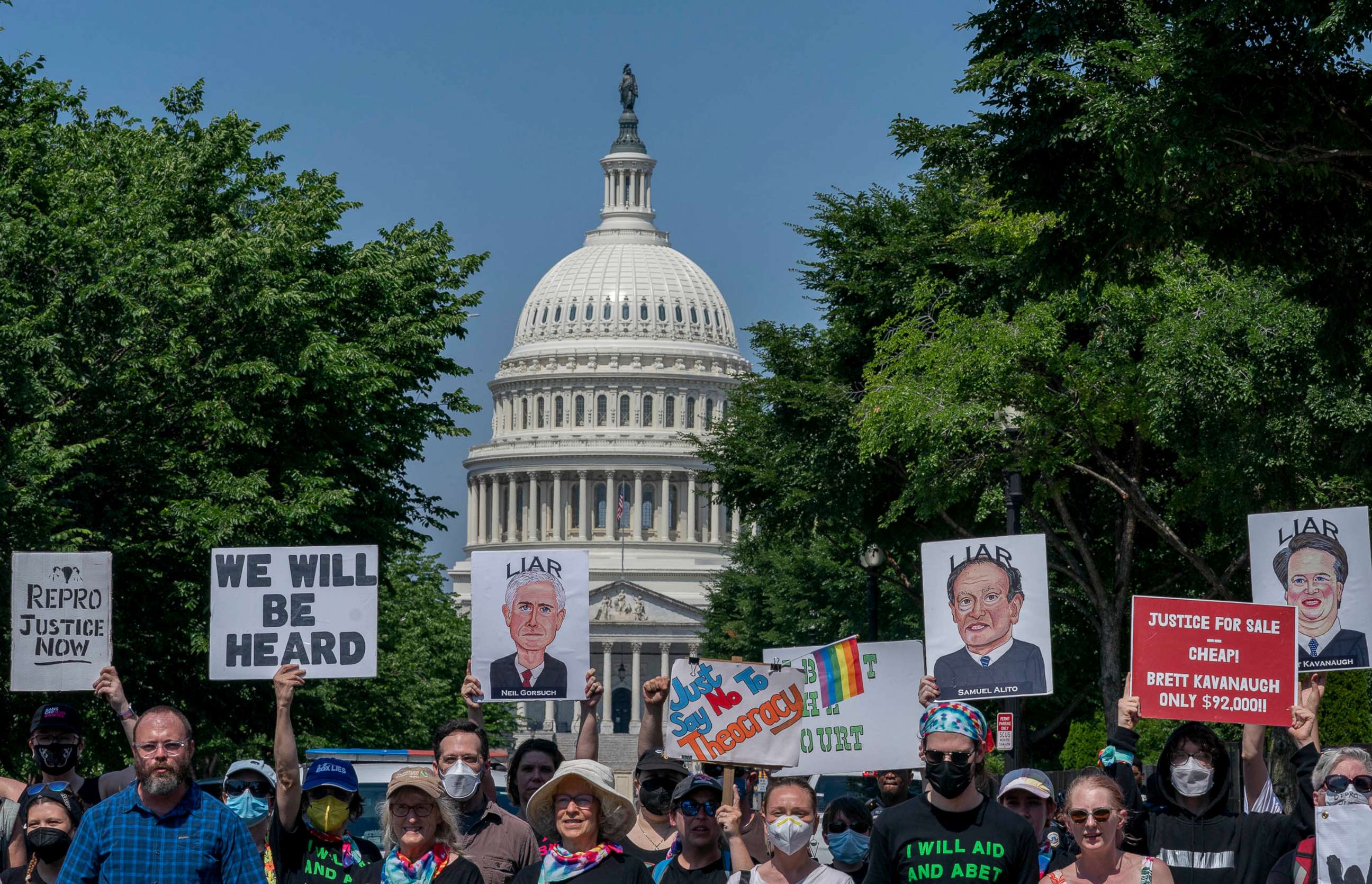Congress passes bill to provide more security for Supreme Court justices' families
The bill doesn't extend protections to families of the high court's employees.
The House on Tuesday approved a Senate bill to provide more security for the families of Supreme Court justices, sending the measure to President Joe Biden's desk after Democrats and Republicans could not agree over whether to extend the increased protections to the families of court clerks.
The bill -- first approved unanimously by the Senate a month ago -- was passed by the House nearly a week since an armed man was arrested near Brett Kavanaugh's home and charged with attempted murder of the Supreme Court justice after allegedly telling authorities he was suicidal and wanted to kill Kavanaugh, police have said.
"By passing this bill as is, we are sending a clear message to the left-wing radicals you cannot intimidate the Supreme Court justices. I hope we all take that message to heart," House Minority Leader Kevin McCarthy said on the House floor on Tuesday.
Supreme Court justices are already provided with security; however, the Supreme Court Police Parity Act would expand security to the justices' families. The legislation had been stalled in the House over proposed amendments by House Democrats to extend protections to the families of Supreme Court employees, as well.
Senate Minority Leader Mitch McConnell told reporters Monday night that no changes to the Senate-passed bill would be tolerated.

"The right bill passed the Senate. We're not going to pass this House bill if it comes over," McConnell said.
Sen John Cornyn, R-Texas, said the House was "playing with fire," adding, "All we've tried to do is give the justices the very same protection that's available to members of Congress."
The stalemate came as Republicans accused Democrats of delaying taking up the legislation amid new threats to the high court -- which has seen renewed protests by advocates ahead of major opinions on polarizing issues including gun rights and abortion access.
Democrats, in turn, said the GOP was ignoring the wider problem.
"Let me tell you why it took us a few weeks rather than just one week to pass this legislation: It's because Republicans refuse to protect the families of Supreme Court employees who are at risk," California Rep. Ted Lieu said.

"We understand that there was Republican opposition to that aspect of the bill, and in the interest of protecting the justices' families, we can no longer delay in passing the only version of the bill they would apparently agree to." Lieu added.
After the House passage, six New Jersey representatives who voted against the security bill said they supported it but wanted those same enhancements extended to federal judges and their families, citing the case of Judge Esther Salas, whose son was killed in 2020. A push in the Senate to do just that was blocked last month by Kentucky Republican Rand Paul.
The Supreme Court-focused legislation gained momentum in the House after 26-year-old Nicholas Roske was charged with attempted murder last week when he showed up armed to the Maryland home of Justice Kavanaugh, according to authorities.
Roske was angry over the recent mass shooting at an elementary school in Uvalde, Texas, and the leaked draft of the Supreme Court's decision overturning Roe v. Wade, according to an affidavit from an FBI agent submitted in support of a criminal complaint in U.S. District Court on Wednesday.
Roske was allegedly spotted by two U.S. Marshals wearing black clothes and carrying a backpack getting out of a cab in front of Kavanaugh's house at approximately 1:05 a.m. Wednesday, according to the affidavit.
A Glock 17 pistol, two magazines, pepper spray, zip ties, a hammer, screwdriver, nail punch, crowbar, pistol light and duct tape were in Roske's backpack, according to the affidavit.
The suspect then allegedly called the Montgomery County Emergency Communications Center to say he wanted to kill a Supreme Court justice, according to the affidavit. (He agreed to remain in custody until a preliminary hearing currently scheduled for June 22.)

The Department of Homeland Security has already warned that there could be an increase in threats against Supreme Court justices over the leaked draft of the Roe v. Wade decision, which has not yet been formally issued.
A bulletin obtained by ABC News in May said the draft leak "prompted a significant increase in violent threats -- many made online via social media and some of which are under investigation -- directed toward some U.S. Supreme Court Justices and the Supreme Court building."
The National Capital Threat Intelligence Consortium identified at least 25 violent threats on social media that were referred to partner agencies for further investigation, the bulletin said.
"Some of these threats discussed burning down or storming the U.S. Supreme Court and murdering Justices and their clerks, members of Congress, and lawful demonstrators," the bulletin said.
U.S. Marshals bolstered their protective details for the justices and began guarding their homes around the clock in the wake of the leaked draft, Attorney General Merrick Garland said Wednesday.




